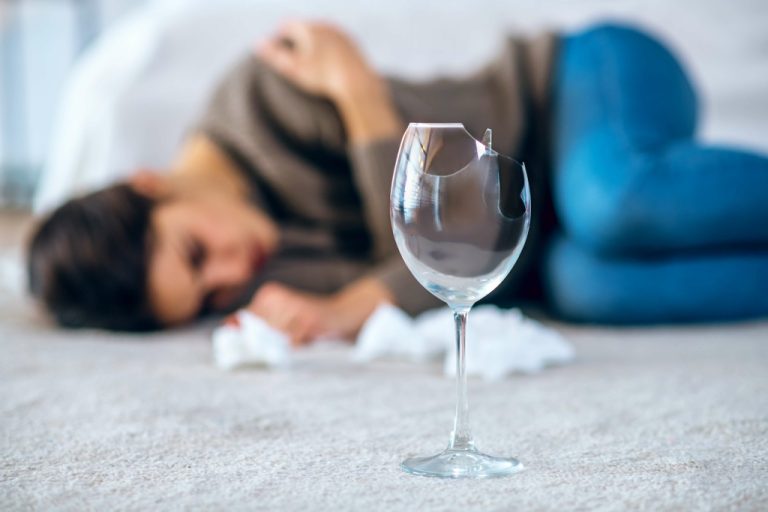Anger management issues may be rooted in a specific mental health disorder in some cases. Drinking may also be a method to self-medicate negative emotions, including anger. Alcohol is a depressant substance, meaning that it helps to suppress some of the “fight-or-flight” stress reactions that anger can induce. Repeated alcohol abuse as a coping mechanism increases the odds for developing problems related to alcohol, however. It also raises the risk for negative consequences of outbursts related to explosive and uncontrolled anger.

Investigation of sex differences in neural correlates of aggression using 22 male and 20 female subjects revealed differential brain activation patterns between both the genders in response to provocation. Aggressive men recorded higher activation of the left amygdala than aggressive women and a positive correlation with orbitofrontal cortex (OFC), rectal gyrus, and ACC activity, which was negatively correlated in women. The findings indicate that aggressive men are more inclined to automatic emotion regulation (attributed to OFC and rectal gyrus) in response to provocation compared to aggressive women (Repple et al., 2018). In a separate study involving 24 men and 11 women, alcohol alone had no effect on the amygdala and ventral striatum; however, their activities were positively correlated with aggression in response to provocation.
Talk with your doctor about reducing alcohol intake
Also, it may be important to consider alcohol-adapted anger management treatment primarily for combined anger- and alcohol-involved clients, as these were the clients eligible for the present study. At a simple level, anger, irritability and low frustration tolerance are common as a person copes with alcohol withdrawal and making significant life changes. Alcohol consumption reduces negative emotional states, including anger, and is negatively reinforcing via tension reduction https://ecosoberhouse.com/ (Sher & Levenson, 1982). Anger also contributes to relapse via psychological and interpersonal influences. Enhancing anger management skills may improve coping with anger as well as enhance accessing other cognitive and behavioral coping skills disrupted by anger arousal. In spite of the theoretical and empirical associations between anger, drinking and AUDs, our review revealed only four studies evaluating anger-specific treatment in alcohol and substance treatment.

Both inpatient and outpatient programs for alcoholism addiction provide a supportive and safe environment for overcoming the grip of alcohol on your life. But these programs do not address only addiction – they also often offer counseling services to talk through your issues with anger. More than anything, a rehab program can help you create ways to deal with both alcoholism and anger. Even if you’re not ready to attend a more formal alcoholism rehab program or one-on-one counseling, it is a good idea to start attending an AA community support group. These groups are designed to help those struggling with alcohol addiction overcome the consequences of their condition – including being able to control their angry responses. AA meetings are typically open to anyone who wants to attend, and offer a nonjudgmental and supportive environment to talk through the effects alcoholism has had on your personal life.
The Relationship Between Recovering Alcoholics and Anger
If normally you might suppress your emotions in a situation, alcohol can make you more dramatic. If you or someone you care for are struggling with alcohol, reach out for help. Do so as soon as possible, because the longer unhealthy drinking habits continue, the more likely it is that dependence and addiction will develop. People who suffer from Post-Traumatic Stress Disorder (PTSD) are more https://ecosoberhouse.com/article/anger-and-alcoholism/ likely to abuse alcohol, and people who have issues with drinking are more likely to have PTSD. “Child maltreatment” is defined as any form of physical, emotional, or sexual abuse, as well negligence or exploitation that results in actual or potential harm to the child’s health and/or well-being. There is an extremely close relationship between alcohol and intimate partner violence.
- Others may launch into irrational rages or engage in uncharacteristic acts of aggression and violence.
- Researchers have found that alcohol takes a psychological and physiological toll on the body and may actually compound the effects of stress.
- This differential effect was also marginally present for during-treatment AA meeting attendance and posttreatment drinking consequences.
- Furthermore, an angry drunk may not feel like consequences matter, making it seem like a good idea from their perspective to create or partake in a dangerous situation.
- This means that after having a drink, some people may be less able to see things from another person’s point of view.
Predicting outcomes of individuals with alcohol dependence following a treatment experience has long been of interest in the field (e.g., Edwards et al., 1988). Edwards et al. indicate that several pretreatment characteristics (e.g., personality, employment characteristics) predicted posttreatment outcomes. Since this research was conducted, the study of predictors of outcome has progressed substantially (c.f., Adamson, Sellman & Frampton, 2009 for a review).
Getting Help for Co-Occurring Disorders
The research into the relationship between stress and alcohol can help healthcare providers by identifying patients who are most at risk of alcohol relapse in early recovery and help patients deal with how stress can motivate them to drink. Abuse during childhood increases the risk for alcohol use disorders in both adolescence and in adulthood. This is particularly true for children who grow up in alcoholic homes, researchers report.
When you do talk to someone, don’t just use the time to complain, but try to brainstorm and suggest possible solutions. This will make you seem more rational and people will be more likely to help you. If taking time out doesn’t help, find a way to put your anger to good use. Exercises, such as running or kickboxing, can be a good way to burn off any rage. Once you’ve calmed down, you will be able to see things more clearly and have a more rational response.